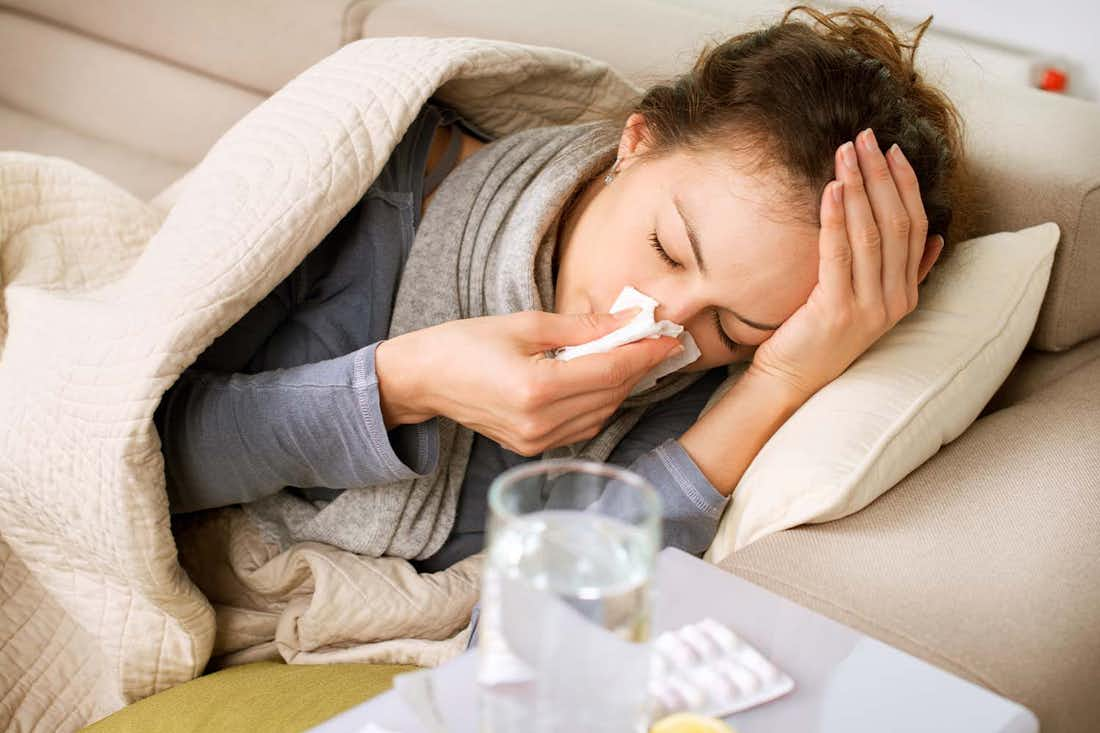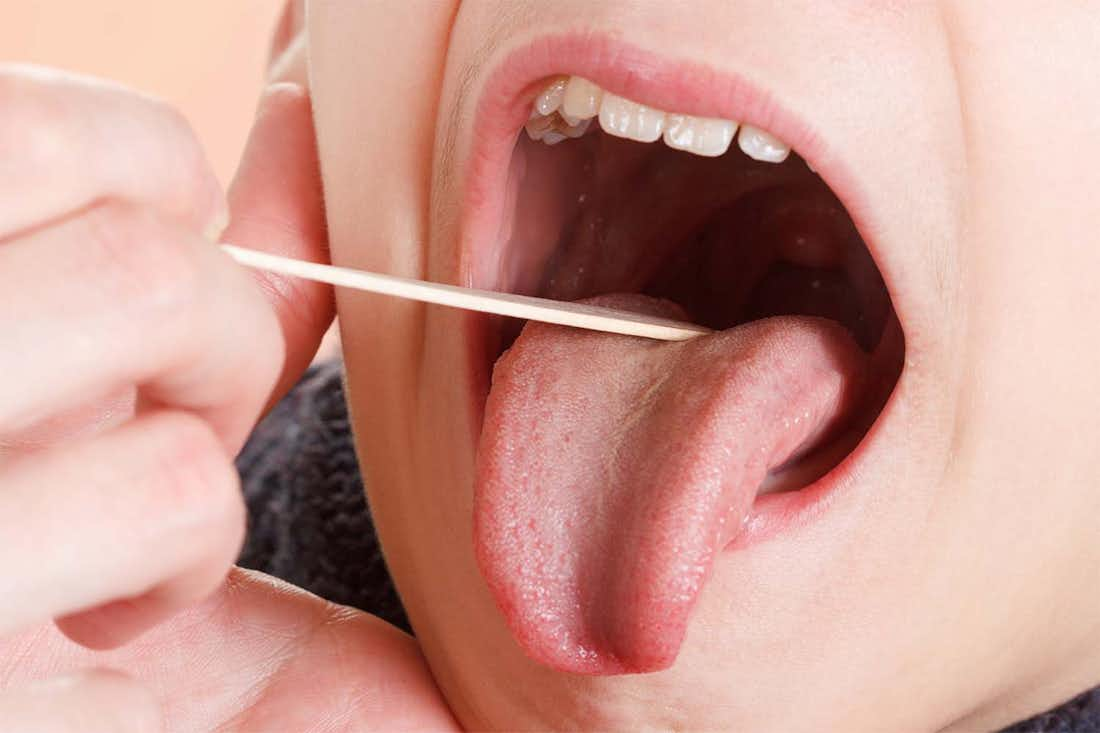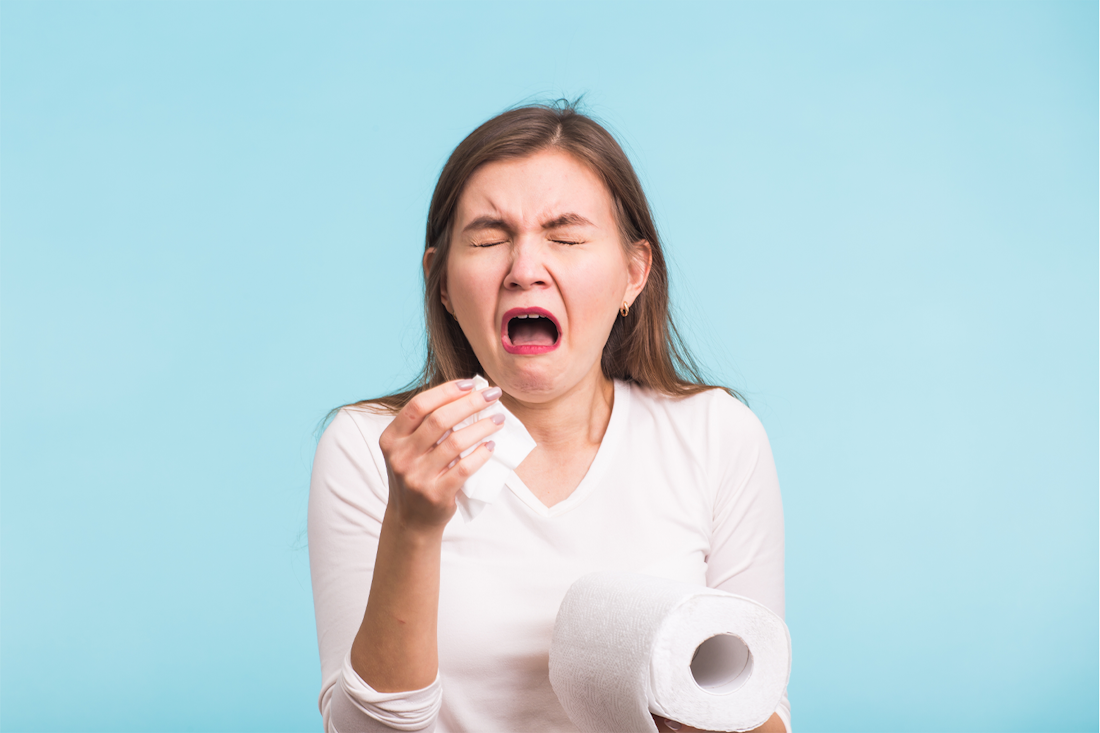Jun 14, 2022
Why Do I Cough After I Eat?
5 minute read
Eating is not only a necessary function of being alive, but it should also be a highly enjoyable experience. However, if you end up with a coughing fit after every meal or snack, you might feel like you never want to eat again. A cough can be disruptive, uncomfortable, and all-around pesky, and if you are dealing with a cough each time you eat, you are likely hoping to get to the bottom of it.
A lot of people tend to cough after eating without any clear reason why — but believe it or not, plenty of factors can contribute to coughing after you eat. Let’s take a look at some of the most common causes and discuss how you can cut the cough before your next meal.
What Is Coughing?
Coughing doesn’t just happen for no reason at all, even if the underlying source isn’t entirely clear. Coughing is a defense mechanism deployed by your body to clear obstructions in the airway. It’s a lifesaving mechanism that can help prevent you from choking or swallowing unwanted particles.
Coughing can also occur to remove unwanted particles from your body. If you have a cold or infection, you might cough as a means of removing the foreign substance from inside your body. This is why coughing is one of the most common symptoms of upper respiratory tract infections and the common cold.
When a cough becomes particularly persistent and uncomfortable, it can signal that something isn’t quite right.
What Causes a Cough After Eating?
Coughing can be a result of many different factors, but if your cough only acts up after eating a meal or snack, there are a few reasons why this may be occurring. Identifying the cause of your symptoms can help you take the first step toward finding relief.
Here are some possible causes of a cough after eating.
Acid Reflux
If you’ve ever felt a burning or stinging sensation in your throat after eating acidic or spicy foods, you’ve probably experienced acid reflux. This occurs when stomach acid moves back up into your esophagus.
A muscle at the bottom of your esophagus called the esophageal sphincter relaxes when you eat or drink, allowing the food or beverage to enter your stomach. However, it doesn’t always completely close up after swallowing, allowing acid from your stomach to come back up. This irritates the esophagus and throat, which can lead to discomfort as well as coughing.
A more severe and ongoing form of acid reflux called gastroesophageal reflux disease (GERD) occurs when stomach acid frequently flows back into your esophagus. It occurs at least twice a week. Symptoms include chest pain, burning sensation in the chest, difficulty swallowing, or regurgitation of food or sour liquid. However, nighttime symptoms include chronic cough and new or worsening asthma.
There’s also laryngopharyngeal reflux (LPR), a form of acid reflux without the traditional symptoms. Symptoms of LPR include hoarseness or constantly needing to clear your throat. You might cough during or after meals and when waking up, talking, or laughing.
How To Treat Acid Reflux
One of the best ways to treat acid reflux is by neutralizing the stomach acid that is causing discomfort. You can purchase antacid tablets over the counter, and these can be taken orally to keep stomach acid from flowing back into your esophagus. Always speak to a doctor if you are needing to use antacid tablets to control your symptoms.
You should also monitor your diet, avoiding fatty or fried foods, tomato sauce, alcohol, caffeine, onions, chocolate, or mint, which can all contribute to acid reflux. You also should avoid lying down after a meal, as this can cause stomach acid to flow into your throat.
Managing your weight can also help decrease instances of acid reflux. Excess pounds can put pressure on the abdomen, which pushes on the stomach and causes acid to reflux upwards.
If you suspect you may be dealing with acid reflux, consult your doctor for professional guidance. Your doctor may recommend changing your sleeping position, and will be able to work with you to help you find relief.
Asthma
Asthma is a chronic disease in which the airways narrow and swell, causing excess mucus production. This can make breathing difficult, which triggers coughing and wheezing.
Symptoms of asthma are worsened during an asthma attack, which can be triggered by things like exercise, cold weather, environmental allergies, and even food allergies. However, certain foods can trigger an asthma attack.
Food allergies can trigger an asthma attack in people with those allergies. These resulting asthma symptoms can range from mild wheezing and coughing to life-threatening asthmatic reactions.
How To Treat Asthma
While asthma is a chronic condition that you cannot necessarily cure, you can manage the symptoms and keep asthma under control. Medications like corticosteroids or leukotriene modifiers are effective prescription methods for alleviating asthmatic symptoms. However, for quick relief, inhalers containing short-acting beta-agonists are usually enough.
Additionally, it’s important to avoid asthma triggers and keep your living space clean to avoid frequent attacks. While exercise can induce allergy attacks, it is important to exercise regularly to strengthen your heart and lungs. This may help reduce the frequency of asthma attacks in the future.
Dysphagia
Dysphagia is the clinical term for difficulty swallowing. If you have dysphagia, it takes more time or effort for food to travel from the mouth to the stomach. It can be painful and even impossible to swallow in some cases.
Persistent dysphagia can happen at any age, though it is more common in older adults. Those with this disorder may feel like food is getting stuck in their throats, naturally leading to coughing or wheezing after consumption.
This can be uncomfortable as well as dangerous. Those with dysphagia are at a higher risk of choking or difficulty breathing.
How To Treat Dysphagia
Dysphagia can be treated by a speech or swallowing therapist that can help retrain the throat muscles to coordinate swallowing or proper chewing. There are also surgeries and medications available that can help correct any abnormalities.
However, dysphagia can often be corrected by just changing your eating habits. Eating smaller, more frequent meals, cutting your food into small pieces, and taking your time while chewing are all effective ways to manage dysphagia.
Upper Respiratory Infections
Most coughs are caused by an infection of the respiratory system, including the sinuses and throat. If you have a respiratory infection, you probably cough at all times of the day, and especially at night. However, eating can sometimes worsen the symptoms. More specifically, eating particularly dry foods may irritate your throat, aggravating your cough reflex.
Persistent, dry hacking can signify that the infection never properly healed. If you have been dealing with symptoms of an upper respiratory tract infection for more than one week, you should consult your healthcare provider for guidance regarding treatment and next steps.
Treating Respiratory Infections
Depending on the cause of the infection, a doctor will recommend different treatment methods. If the root cause is bacterial, you may be able to use antibiotic medications to clear up the infection. On the other hand, an upper respiratory tract infection caused by a virus will not respond to antibiotics. In this case, your doctor may prescribe cough medicine or decongestants to aid with the recovery process. However, one of the best remedies is often just rest and rehydration.
Drinking plenty of fluids may help soothe an irritated throat and nose, which may in turn work to ease a cough.
Sometimes, a cough is the result of inflammation in the respiratory tract. If that’s the case, a doctor will likely prescribe anti-inflammatory medications to reduce swelling and discomfort.
If your symptoms do not respond to your doctor-recommended treatment method, you should return to the doctor’s office for a follow-up appointment to ensure that the infection is not progressing.
In Conclusion
Coughing is a frustrating and sometimes painful symptom of colds, the flu, and allergies. But if you notice that you can’t stop hacking after eating dinner or a snack, there might be another underlying cause.
Coughing might result from something like asthma, acid reflux, upper respiratory infections, or dysphagia. You can try to treat each of these through a few different measures.
As a general rule of thumb, chew your food slowly and thoroughly before swallowing to reduce the risk of choking or coughing after eating. If the problem persists for an extended period of time, you may want to speak with a professional.
If allergies or asthma are why you feel like you’re coughing up a lung, your online allergist is in. Take your free allergy consultation with Cleared to get personalized support and take a major step towards long-term allergy relief.
Sources:
Gastroesophageal reflux disease (GERD) - Symptoms and causes | The Mayo Clinic.
Sulfite Allergy & Sensitivity: Symptoms, Tests & Treatments | Cleveland Clinic.



